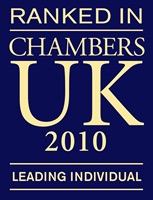Publishing Law
 Throughout 30 years as a qualified solicitor, I have acted for publishers, from some of the very largest to some of the very smallest. I also act for book packagers, who originate ideas for books, create them and deliver finished books to publishers for publication – often highly illustrated co-editions. I also acted for the UK Publishers’ Association for quite a few years. Through working with publishers, packagers and with the Publishers’ Association for such a long time, I have acquired a thorough understanding of the publishing industry and the needs of publishing clients.
Throughout 30 years as a qualified solicitor, I have acted for publishers, from some of the very largest to some of the very smallest. I also act for book packagers, who originate ideas for books, create them and deliver finished books to publishers for publication – often highly illustrated co-editions. I also acted for the UK Publishers’ Association for quite a few years. Through working with publishers, packagers and with the Publishers’ Association for such a long time, I have acquired a thorough understanding of the publishing industry and the needs of publishing clients.
At the same time, I have always acted for authors and authors’ agents (but not on the same matter for which I am acting for the publisher, of course – unless there is no conflict of interest). I find it helpful, when advising publishers, to be able to look at something from an author’s point of view — and vice versa.
The publishing industry has changed a great deal since I qualified as a solicitor in 1979, e.g. in the concentration of dominance within a few multinational conglomerates and in the technology that now exists for making material available to the public worldwide — the Internet. With everything now produced in digital format, there are many more ways for publishers to deliver works to the public, and new print-on-demand technology means that in theory books need never go out of print. And authors have far more, and better, options than ever before to self-publish their work and retain complete control over it.
It is predicted that electronic forms of publication will overtake conventional printed publication in just a few years’ time. There is now a multiplicity of electronic formats in which material can be published and many platforms on which the material can be viewed, and a variety of channels through which the material can be distributed. This combination of possibilities potentially leads to a mind-boggling number of permutations for publishers to choose from in deciding upon an electronic publishing strategy.
All of these factors have an impact on the work that I have been doing for publishers, packagers, authors, literary agents and others over the years. Currently, I am increasingly advising publishers and packagers on electronic rights — both in ensuring that they have acquired sufficient rights in their books and in all the constituent parts of the books to enable them to exploit them electronically, and also as to contracts for electronic publishing.
Typical work that I have been doing for clients includes the following:
For publishers:
Advising publishers on a variety of publishing issues, including contractual relationships with authors and with other publishers, copyright issues, confidentiality and issues relating to their websites e.g. Terms and Conditions of Use of websites, privacy policies; and drafting and advising on all necessary documents, such as:
- Publishing contracts (for books, journals etc)
- Confidentiality agreements
- Assignments of copyright
- Software licences
- Distribution agreements
- Electronic publishing rights contracts
- Licences of multimedia rights
- Online publication user agreements
- Contracts with editors and freelance contributors
- Contracts with illustrators
- Contracts for acquisition or sale/licensing of translation rights
- Contracts for international co-editions
- Contracts for commissioning or use of artwork
- Model releases
- Waivers of moral rights
- Inducement letters (which are advisable where an author contracts with the publisher through a company owned by him or her, probably for tax reasons)
- Merchandising licences
Advising publishers on their standard forms of contract, particularly for new areas of activity for them, e.g. Internet or CD Rom publishing, and negotiating contracts for them, e.g. with other publishers or with other licensors; including:
- Multimedia product development agreements
- Multimedia product distribution agreements;
Advising publishers on acquisition of titles from other publishers
Advising publishers on Intellectual Property and Defamation, including reading books for libel prior to publication.
For authors:
Advising authors (including authors of fiction, authors of professional books, and illustrators) on book publishing contracts and/or contracts for the exploitation of other rights (e.g. film and TV rights) and negotiating on their behalf; including:
- Book publishing contracts (print and electronic publishing)
- Option and assignment or licence of film/TV and other rights
- Licences of video/CD-ROM/computer games rights
- Screenwriting agreements
- TV Presenter agreements

